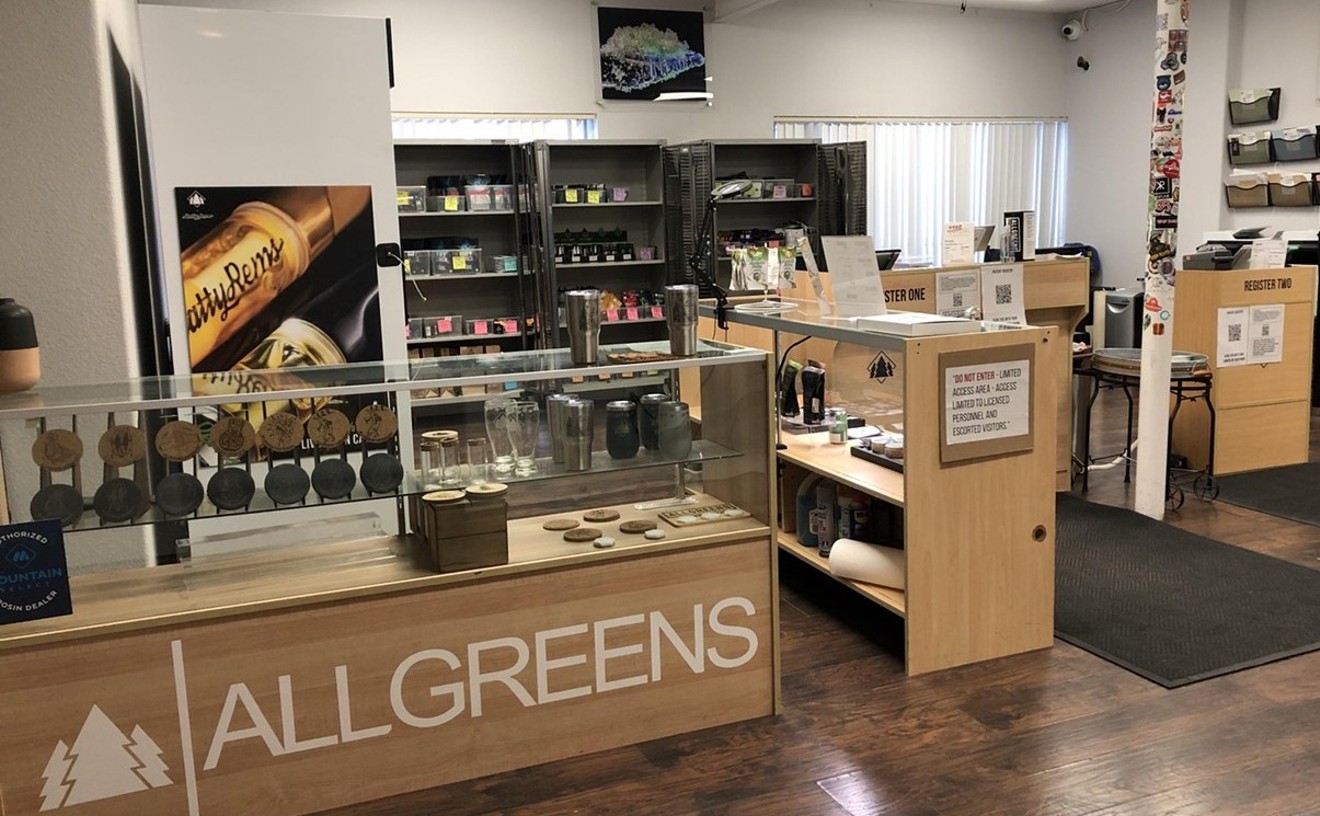Today's cannabis business conferences look a lot different than they did six years ago. No longer a medical-only option with fringe investment opportunities in a few markets, legal cannabis is now a cash engine pushed by hedge funds and corporate financiers eager for new action.
Jeff Mascio saw marijuana's momentum several years ago while managing a hedge fund, but left that life to dive all in with Cannabis One in 2017. Mascio's company now co-owns the Joint dispensary in Denver, as well as cannabis businesses in Washington state and Oregon. Before Colorado pot investment rules change this fall, we caught up with Mascio to get his take.
Westword: What got you into legal cannabis?
Jeff Mascio: My prior business was managing hedge funds and private equity. After Amendment 64 passed, I had some clients who really started pushing me to look at the cannabis industry as an investment opportunity. We found out early on that nobody really had any business expertise in the cannabis space. We had to roll up our sleeves or give the capital that might be part of the fund back to the managers. We decided to move forward with a different business model, ultimately, which became Cannabis One.
Commercial cannabis has been around in some form for over ten years now. At what point do you think it became more attractive to corporate finance and capital investment?
My prior business life was looking for new opportunity, and the biggest motivating factor here was looking for opportunities in emerging markets. When you have a $50 billion underlying industry come up, it began looking like an opportunity that required more necessary attention. At first, it was 5 percent of my thinking and time dedicated to this cannabis business model, and 95 percent to other business I was conducting. Then it started to get to more cannabis, and by December 31, 2016, I realized the opportunity I had in cannabis was greater than any I had in other directions, so I sold off my asset management/hedge fund business and became full-time at Cannabis One in January 2017.
I basically haven't looked back since, although this hasn't been an easy road. It's been challenging, but this has been everything I thought it was going to be and more. We have an opportunity here to ultimately right a wrong our government created by scheduling cannabis in the first place. The fact that the world cares about what we're doing, and the transactions that are happening at the Joint, our flagship store, is something we felt was something necessary to be involved in.
As consolidation and more corporate finance increases in legal cannabis, how does diversity also increase?
We've always maintained an agnostic approach of bringing in the most qualified people. What we're finding is that in the last twelve months or so, we've seen more diversity in the industry as the risk associated with this early on [has lessened]. Now the employees we're able to attract and bring in are of a much more diverse background. It was difficult to attract that diversity at first, because people didn't want to take the risk. Now we're seeing a much bigger sampling and more ability to bring in diversity at higher levels of companies.
As a former hedge fund manager, what are your thoughts on the upcoming changes to cannabis financing regulations in Colorado?
It was certainly disappointing to see [former governor John] Hickenlooper veto the same bill in 2018. We're obviously positioned in a way that greatly benefits from that law. We've been pushing for it and are excited to see those changes, and I think it enhances the value of the entire cannabis industry across Colorado. When you don't have public or outside capital coming from out of state, it really caps the growth potential in Colorado.
It was necessary early on for the state Marijuana Enforcement Division and regulators to keep control on where that money was coming from, simply because of the risk of black market and illegally gotten gains. That risk seems to have dissipated, and the MED has done a fantastic job in working with the industry to make sure that's kept at bay. When those changes go into effect, I think we're going to see a very different landscape in the cannabis space here. I think we'll see valuations on many of the well-run cannabis businesses in Colorado expand, and an economy expansion will follow — not that we need more people moving to Colorado.
Does Cannabis One have any upcoming acquisitions once the rules take effect in November?
We do. We have quite a few slated, but I can't talk about those yet, unfortunately, until it becomes public information.
Is cannabis consolidation something you see happening more with the new rules?
One hundred percent, especially once the law goes into effect. Anything announced now can't officially take place until the rule changes, but those who are taking the risk of being early will probably be rewarded.
[
{
"name": "Air - MediumRectangle - Inline Content - Mobile Display Size",
"component": "12017618",
"insertPoint": "2",
"requiredCountToDisplay": "2"
},{
"name": "Editor Picks",
"component": "17242653",
"insertPoint": "4",
"requiredCountToDisplay": "1"
},{
"name": "Inline Links",
"component": "18838239",
"insertPoint": "8th",
"startingPoint": 8,
"requiredCountToDisplay": "7",
"maxInsertions": 25
},{
"name": "Air - MediumRectangle - Combo - Inline Content",
"component": "17261320",
"insertPoint": "8th",
"startingPoint": 8,
"requiredCountToDisplay": "7",
"maxInsertions": 25
},{
"name": "Inline Links",
"component": "18838239",
"insertPoint": "8th",
"startingPoint": 12,
"requiredCountToDisplay": "11",
"maxInsertions": 25
},{
"name": "Air - Leaderboard Tower - Combo - Inline Content",
"component": "17261321",
"insertPoint": "8th",
"startingPoint": 12,
"requiredCountToDisplay": "11",
"maxInsertions": 25
}
]












